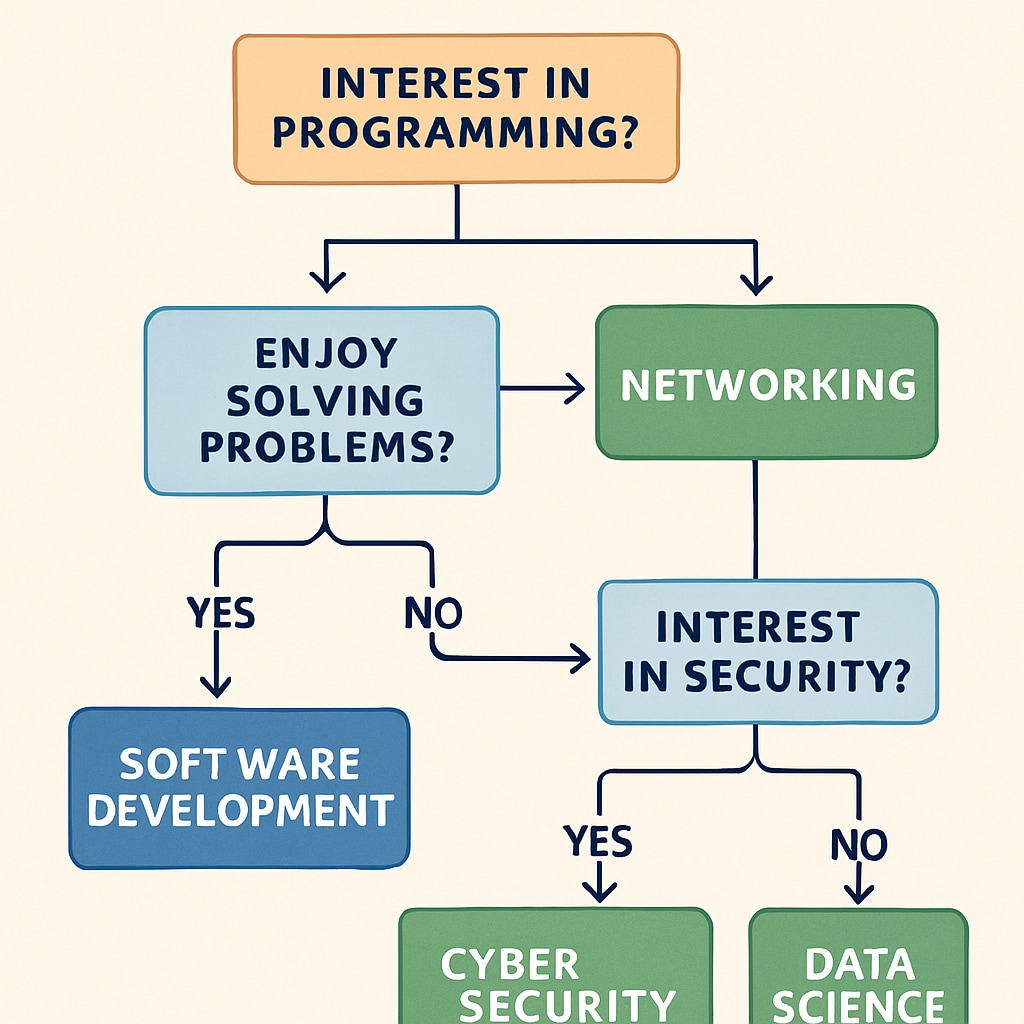Choosing the right university major selection for an IT career and long-term professional planning can be overwhelming for high school students. The tech industry offers diverse paths, each with unique challenges and rewards. This guide breaks down key IT specializations, their future prospects, and actionable steps to align your strengths with the right career trajectory.
Understanding IT Career Paths
Information Technology encompasses several high-demand fields. Below are the most prominent options:
- Cybersecurity: Focuses on protecting systems from digital attacks (see Computer security on Wikipedia). Professionals in this field work as ethical hackers, security analysts, or forensic experts.
- Software Development: Involves creating applications and systems. Careers range from front-end developers to full-stack engineers.
- Data Science: Combines programming, statistics, and domain knowledge to extract insights from data.
- Cloud Computing: Deals with managing and optimizing cloud-based infrastructure (explore Cloud computing on Britannica).

Self-Assessment for IT Major Selection
Before committing to a specific IT career path, evaluate your skills and interests:
- Problem-Solving Aptitude: Do you enjoy logical puzzles or debugging code?
- Creativity: Are you drawn to designing user interfaces or innovative solutions?
- Attention to Detail: Can you meticulously analyze systems for vulnerabilities?
- Learning Agility: IT evolves rapidly—are you comfortable with continuous education?

Job Market Trends and Future Prospects
The demand for IT professionals continues to grow. For example:
- Cybersecurity roles are projected to increase by 35% by 2031 (U.S. Bureau of Labor Statistics).
- Software developers earn a median salary of $120,000/year, with remote work opportunities.
Therefore, aligning your university major selection with industry needs can enhance job security and earning potential.
Final Tip: Attend university open days, connect with IT professionals, and experiment with beginner-friendly coding platforms like freeCodeCamp to test your interest before finalizing your college major.


